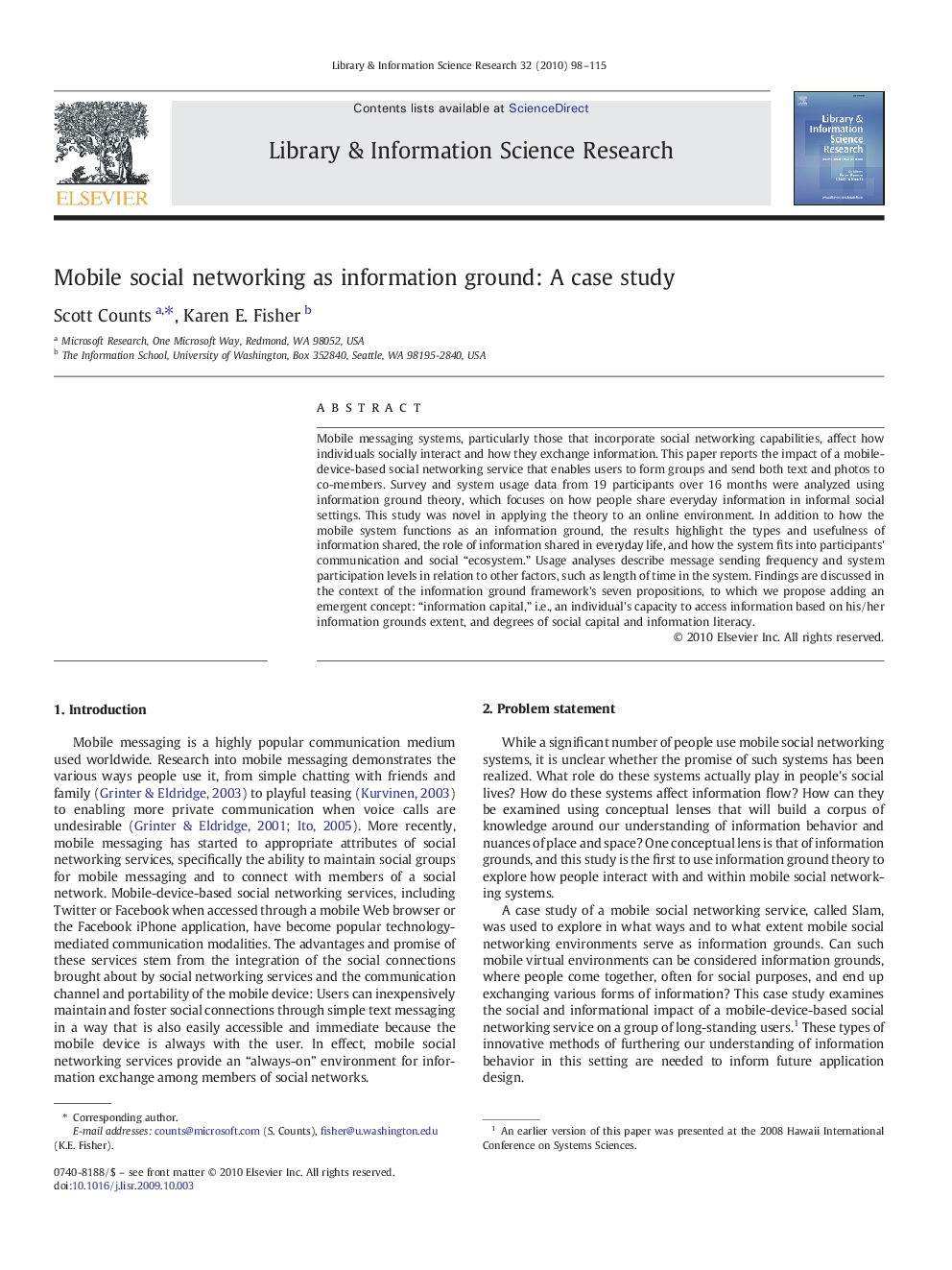| Article ID | Journal | Published Year | Pages | File Type |
|---|---|---|---|---|
| 1099449 | Library & Information Science Research | 2010 | 18 Pages |
Mobile messaging systems, particularly those that incorporate social networking capabilities, affect how individuals socially interact and how they exchange information. This paper reports the impact of a mobile-device-based social networking service that enables users to form groups and send both text and photos to co-members. Survey and system usage data from 19 participants over 16 months were analyzed using information ground theory, which focuses on how people share everyday information in informal social settings. This study was novel in applying the theory to an online environment. In addition to how the mobile system functions as an information ground, the results highlight the types and usefulness of information shared, the role of information shared in everyday life, and how the system fits into participants' communication and social “ecosystem.” Usage analyses describe message sending frequency and system participation levels in relation to other factors, such as length of time in the system. Findings are discussed in the context of the information ground framework's seven propositions, to which we propose adding an emergent concept: “information capital,” i.e., an individual's capacity to access information based on his/her information grounds extent, and degrees of social capital and information literacy.
